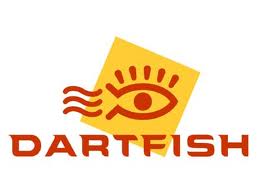
Victor, the mobile market is a very disruptive movement to many software companies. How has Dartfish continued to succeed with more and more competition?
Actually it helps the overall picture because many coaches had not realized before how important video was. An app is only once piece of a total solution and if you do not answer all the needs (or most of the needs) of an organization, you will not be successful. Dartfish has been serving this community for more than 10 years and we have listened to our client’s needs. This why we continue to be the driver in this market. We have developed apps as well and will continue with new ones to come, but always in a fully integrated and complementary approach (cloud, software and mobile).
Dartfish.tv allows users to monetize their skill sets with revenue streams similar to the iTunes store. How do you see coaches take advantage of this in the world of sports performance? Many private facilities are looking for both a competitive edge and a way to keep profits from dissolving to their competition. How does this help coaches on salary such as college and professional ranks as well?
There are many ways where coaches can create additional revenue or at least show a very professional image with great technologies. Coaches can sell video clips online (clips, drills, etc.,), they can start remote coaching services, they can post videos of camps and clinics, they can ask parents to subscribe to competitive events. We have clients with thousands of videos on their dartfish.tv platform today.
Many coaches want instant feedback or analysis live during training sessions. Most experienced coaches feel just the opposite that athletes should be viewing outside the field, court, pool, or track. Shouldn't analysis be more in the office and not in the field? What problems have you heard regarding this practice?
Actually there is a fine line between doing too much on the field and not doing enough with video. A quick visual feedback on the field is very beneficial to the muscle memory learning experience (seeing is believing). However, doing too much can be disruptive and you will lose the impact according to our best users. Deeper analysis should be done after the training session to find out additional facts and reinforce what was communicated on the field.
Fusion of data sets such as EMG and Force plates can be done with your system; can you share why this is going be a major and more common practice in the future?
What is essential here is to be able to have the full picture. Too many times, athletes and coaches are presented with data and it is very complex to really understand what is going on just by looking at the numbers. We say that your data needs video! As more and more data systems are available to larger audiences, the fusion with video will help the understanding and communication process. It is an additive process. A picture or video may worth a thousand words, and the data/words are worth a lot, but the combination is worth a million words.
Speaking of the future, without giving away too much can you identify the problems coaches and therapists have with video analysis with a busy team or clinical setting that will be alleviated with the innovations you are working on currently?
We are working on offering a product for every step of the process. 3 Key elements are important for therapists and coaches: Communicate, analyze, and then share. The key is to have the solutions that are fully integrated within their processes. It is always difficult to first embrace something new (people hate changes) but as soon as you have your workflow well established and you see that you can reap the benefits (patients doing better, medals won, increased revenue) there is no more doubt. When the first vehicles were introduced, many moving companies resisted and kept their horses and carts….we don’t see them on the roads anymore.
Interview courtesy of Carl Valle
A few seats still remain for the 2012 BSMPG Summer Seminar - sign up today to avoid disappointment this Sat!



